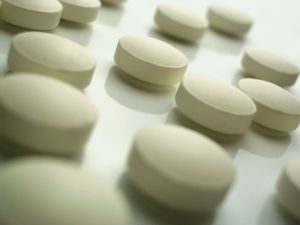Vitamin A Benefits and Why You Should Consider Vitamin A Supplements
| Share on Facebook | Share on Twitter | Share on Google+ |
Severe vitamin A deficiency is a very rare thing in the modern world. Vitamin A is added to many foods, especially dairy products, and it's not hard to get the plant foods that provide vitamin A, such as carrots, sweet potatoes, pumpkin, kale, collard greens, and spinach.
Moderate vitamin A deficiency, on the other hand, is a relatively common thing in the modern world. The vitamin A content of dairy foods is found in the fat, and if you drink low-fat milk and eat margarine instead of butter, you are probably missing a lot of your daily vitamin D. And if you don't eat at least half a cup (40 grams) of pumpkin or sweet potato or a full cup (50 grams) of carrots, kale, collard greens, or spinach each and every day, it's not unlikely that you have a mild to moderate vitamin A deficiency.
Subtle Symptoms Corrected by Vitamin A Supplements
In places where the diet provides almost no vitamin A at all, horrible symptoms are common. Children die of measles and diarrhea because their immune systems are not activated. Children go blind, and adults suffer night blindness.
The fact of the matter is, that if you live in a developed country and you go blind, it's almost a certainly you'll go to get checked out by a doctor. If you develop restless legs syndrome, frequent mild diarrhea, skin rashes, greasy hair, fatigue, or insomnia, however, you might not ever see a doctor. And you would never be diagnosed as deficient in vitamin A.
Vitamin A Benefits for "Diseases that Aren't Quite Diseases"

The real benefit of taking a vitamin A supplement is feeling better by stopping "not-quite" diseases. You may not be sick enough to go to the doctor, but you might not really feel well. Vitamin supplements are safe, effective, and so inexpensive that just about everyone should take one, but there are limits to how much you should take.
The retinyl palmitate form of vitamin A is stored in your liver. If you take more than about 10,000 IU a day, there simply is not enough storage capacity in your liver, and vitamin A can build up in your bloodstream.
The beta-carotene form of vitamin A is stored in your fat. Most of us don't have a problem storing beta-carotene! But the fatter you are, the more beta-carotene you need in your diet. Up to about 25,000 IU a day is helpful.
Taking more than these amounts of vitamin A can cause problems described as vitamin A overdose, and the truth is, you absolutely need as little as 3,000 IU a day. Oil-based supplements in capsule form are always better than liquid vitamins made with water. But if you aren't eating your veggies each and every day, get your vitamin A supplements that are made with retinyl palmitate or a combination of retinyl palmitate and beta-carotene.
The very best vitamin A supplements offer a mixture of retinyl palmitate and beta-carotene in oil, not water. These are the easiest for your body to absorb and they keep the longest on the shelf. You can always trust your body to replenish its stores of vitamin A when you take the product as directed on the label. Keep your vitamin A supplements in a cool, dark place when you for maximum potency.
Selected Reference:
Myhre AM, Carlsen MH, Bøhn SK, Wold HL, Laake P, Blomhoff R (2003). "Water-miscible, emulsified, and solid forms of retinol supplements are more toxic than oil-based preparations". Am. J. Clin. Nutr. 78 (6): 1152–9
-
Skin CareMen Skin Care
-
Free ResourcesFree eBooks
-
The physician should not treat the disease but the patient who is suffering from it.Maimonides
-
Featured Health Supplement
 The restoration and maintenance of normal organ and brain function and a strong immune system is the key to vibrant health and in
avoiding premature-aging!
The restoration and maintenance of normal organ and brain function and a strong immune system is the key to vibrant health and in
avoiding premature-aging!
-



















